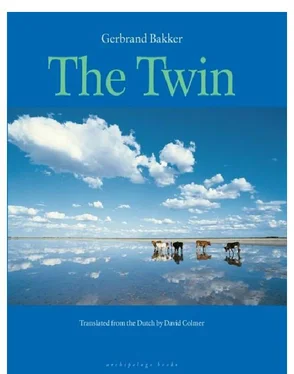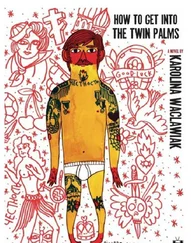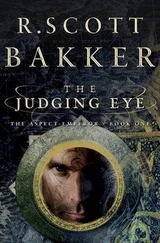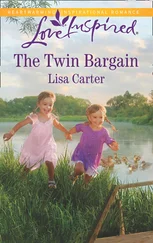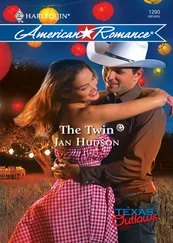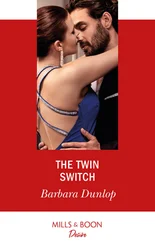“Krraa,” I hear from outside. And then four more times. I leave the bedroom door open and notice while climbing into bed that the leg I’m still standing on is trembling slightly. I lie back to listen, but find myself straining to hear only silence. Calling five times was enough for the hooded crow.
It’s ten thirty in the morning. Raining from low clouds. As usual, the weathermen had it wrong. The kitchen light is on. The crooked ash gleams. The hooded crow is hunched over on its branch. Now and then it ruffles its feathers without spreading its wings, which makes it look like a sparrow bathing in a puddle in the yard. A giant sparrow. I wait. The newspaper is lying on the table in front of me, but I can’t read. I sit and stare out of the window. The clock buzzes; it’s quiet upstairs, there are a few mouthfuls of cold coffee left in my mug. It’s not only quiet upstairs, it’s quiet everywhere, the rain taps softly on the window ledge, the road is wet and empty. I am alone, with no one to cuddle up to.
In February 1963 Father drove circles on the Gouw Sea with Henk and me sitting on the back seat. “This is once in a lifetime,” he chuckled. Henk and I were sitting far away from each other, glued to our own windows. Mother had stayed behind in Monnickendam; she was too scared. When we got back to the harbor she was standing waiting for us in exactly the same spot, little icicles on her eyelashes. During the third or fourth lap Father steered right instead of left at the end of the embankment. After about fifty yards he braked. The embankment is like a dyke from Marken to Volendam that the builders forgot to complete, leaving the island and the town separate forever. Father leaned over the steering wheel and stared at the end of the embankment, the gate to Lake IJssel. He sighed. The sun was shining, it was as if the sun had shone all through that long winter. Snow drifted over the ice like sand on a wet beach. Without looking at each other, Henk and I realized what Father wanted to do. We broke free from our windows and slid towards each other on the back seat. We were fifteen years old. We saw another car driving past in the rear-view mirror, we didn’t hear it. Father sighed again. The engine had stalled, it was quiet. “The ice is a good two and a half feet thick,” someone at the harbor had told Father. That was unimaginably thick. Father measured it roughly for himself with his hands and mustered the courage. Two and a half feet of ice, that would hold a truck. It was more than quiet, the silence was terrifying. Father didn’t know how thick the ice was past the embankment. While he sat there sighing, we crept even closer together on the back seat until we were like Siamese twins joined from the sides of our feet to our shoulders. If Father was brave enough for the big adventure, we would face it as one man, without fear, silently. Father started the car, it didn’t turn over until the fourth or fifth attempt. I no longer had any sense of my own skin, my own muscles, my own bones. He could have put the car into first. But he reversed, very slowly, as if taking the time to change his mind. Henk and I saw the four mounds of snow that had blown up against the tires grow slowly smaller. Then Father did a fourth or fifth lap at top speed, with the car slipping now and then and, for a moment, a very brief moment, disrupting our Siamese unity. It was only when we saw that Mother could see us, just before Father drove the car up the boat ramp in the harbor, that we let go of each other and became Henk and Helmer again. Mother couldn’t get a word out, her chin refused to lower, her lips were two strips of frozen flesh.
Before heading off, I do things I could just as well do later. I move the sick heifer, which is no longer sick, back with the other yearlings. I lift up the lid of the feed bin in the chicken coop and tip in a bag of feed. The donkeys get a few handfuls of hay, even though I already gave them a chopped-up mangold this morning. It’s still cloudy, but it’s stopped raining. Past Zunderdorp, the city lies before me like a plain of gray blocks.
In front of the chip stand. A place both Riet and I know. But driving up, I see that the chip stand has vanished and the spot in front of the vanished chip stand is already taken. I park the Opel Kadett behind the other car, a shiny, expensive model with two men in the front.
Riet sounded very businesslike during the telephone conversation, as if my yes hadn’t surprised her at all. Henk already knew about it and he had said yes, too. No, she wasn’t coming with him. “He wouldn’t appreciate that, his mother dropping him off at a sleepover.” In answer to my question as to how I would recognize him, she told me to look out for his ears and said she would describe me to him. Just before hanging up, she was more specific about that “yes” of his: his exact words were “what difference does it make?”
I get out of the car. A little further along the walk-on ferry arrives and, with the boat, the name of the service looms up from the late sixties: the Eagle Ferry. The men in the expensive car are both smoking. They’re wearing suits. The kind of car and the kind of men you only see in the city. It starts raining again and I wonder what kind of behavior goes with “what difference does it make.”
“My mother said you’d be wearing this sweater.”
The teenager with short hair and big ears is shaking my hand. He found me, I was watching the young lad who walked off the ferry behind him and off to one side. I’m wearing my good sweater. The blue one with black stripes that I also wore during Riet’s visit, on New Year’s Eve, and to the old tanker driver’s funeral. The lad who came off the ferry behind him looked like Riet. He had the same color hair and was looking around shyly. I was so sure he was Henk that I stepped aside to look past the person standing in my way.
“Mr. van Wonderen?” the person asked.
“Yes?” I said without looking at him.
“I’m here.” He held out his hand and I accepted it. “My mother said you’d be wearing this sweater.”
“Get in,” I say.
“What shall I. .”
“Just put it on the back seat.”
While he takes off his backpack, I watch the boy who looks so much like Riet. He has jumped onto the pannier rack of a bike and wrapped his arms tightly around the waist of the girl who is pedaling. He even rests his head on her back.
“Get in,” I say again.
We open the doors at the same time, but before he has settled down properly I’ve already started the car. A little later I overtake the girl on the bike. The boy is talking to her back and looks at me for a second. He looks at me the way people look at each other in passing: briefly, indifferently, their minds on something else. And still I’m thinking, Henk, why didn’t you get into the car with me?
Instead of turning right at Zunderdorp, I drive straight on. In Volgermeer Polder heavy machines are tearing up knotty little trees. They’ve finally started cleaning up the contaminated ground. On the dead-straight road through the Belmermeer, the youth next to me says something.
“This weather stinks.”
I glance at him, the road is narrow and a car is coming from the opposite direction. He must look like Wien, I think, while pulling over. His listless voice doesn’t really go with his short, ginger hair. Maybe Riet sent him to the barber yesterday and when he saw the barber picking up scissors and comb, he said, “No, just use the clippers,” hoping to give her a good fright when he got back home. I still have the strange feeling something has gone wrong somewhere.
Coming home doesn’t really help. Coming home after you’ve been somewhere very different is always strange. Is that because everything at home is just the way you left it? Whereas you yourself have experienced things, no matter how insignificant, and grown older, even if just by a couple of hours? I see the farm through his eyes: a wet building in wet surroundings, with bare, dripping trees, frost-burnt grass, meager stalks of kale, empty fields and a light in an upstairs room. Did I turn on the light or did Father manage it by himself?
Читать дальше
